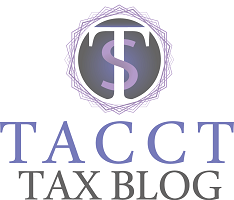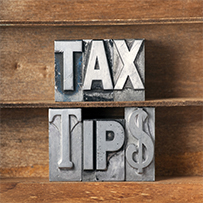It happens to the best of us. If you have more than one credit card, you may use the wrong one. You’re at a business meeting at a restaurant and you pay with your personal credit card, or you pay for a personal dinner with your business card. Is that OK?
No matter what your legal business type, you should always keep business and personal accounts separate. Every business should have a business checking account and credit card.
If you are a freelancer, independent contractor, or solo business owner your personal expenses and business expenses are the same.
You might say, “it’s not a big deal”, but remember that business expenses are deductible and personal expenses are not. And the IRS wants to be sure you aren’t trying to pass off personal expenses as business expenses to make them deductible.
If you don’t have a business checking account and credit card, you must keep a separate accounting system for business expenses. That means documenting the business purpose for every business expense.
If you have a corporation, LLC, or partnership, business and personal expenses absolutely must be kept separate.
Why Not Mix Business and Personal Funds
First, some reasons why it is not a good idea to mix business and personal funds:
- It doesn’t look professional. If you are dealing with a vendor or customer and you pull out your personal checkbook or credit card to pay a business expense, you are giving the impression that you are not a real business owner.
- In the same way, lack of separation shouts “hobby” to the IRS. And the IRS is quick to deny deductions and losses for hobbies. If you want the IRS to look at your business as legitimate and not a hobby, keep business and personal separate.
- Clear deductions and income. If you want to be able to claim expenses as deductions, you must be able to show that these deductions were for business purposes. Trying to sort through your personal records at tax time is a nightmare. Capture business expenses in your business account to make it easier to claim those deductions.
- Make it easy for the IRS. As noted above, the IRS is more likely to audit your business and deny deductions and businesses losses if you have no clear separation between business and personal expenses. If you have a home-based business, for example, the IRS might not allow home business expenses if they are not separate.
Taking Money Out of the Business
If you are an employee, pay yourself a reasonable salary, based on comparable salaries for other similar positions. If you are a sole proprietor or partner, you can take a draw by writing a check to yourself from the business account.
If you Make a Mistake
An occasional mistake is only human. Just make sure you document the mistake and edit the transaction in your business records. For example, if you deposit a personal check in your business account, label it as owners equity; if you need to take the money back out, enter the check as a draw on your owners equity. If you forget and pay for something with your personal credit card, label this as an investment also. Just make sure that you have correctly labeled the mistakes in your business records.
In general, every transaction between yourself and the business must be clearly labeled, at arms length, and reasonable. You will find that once you get into the habit you will find it easy to do.



